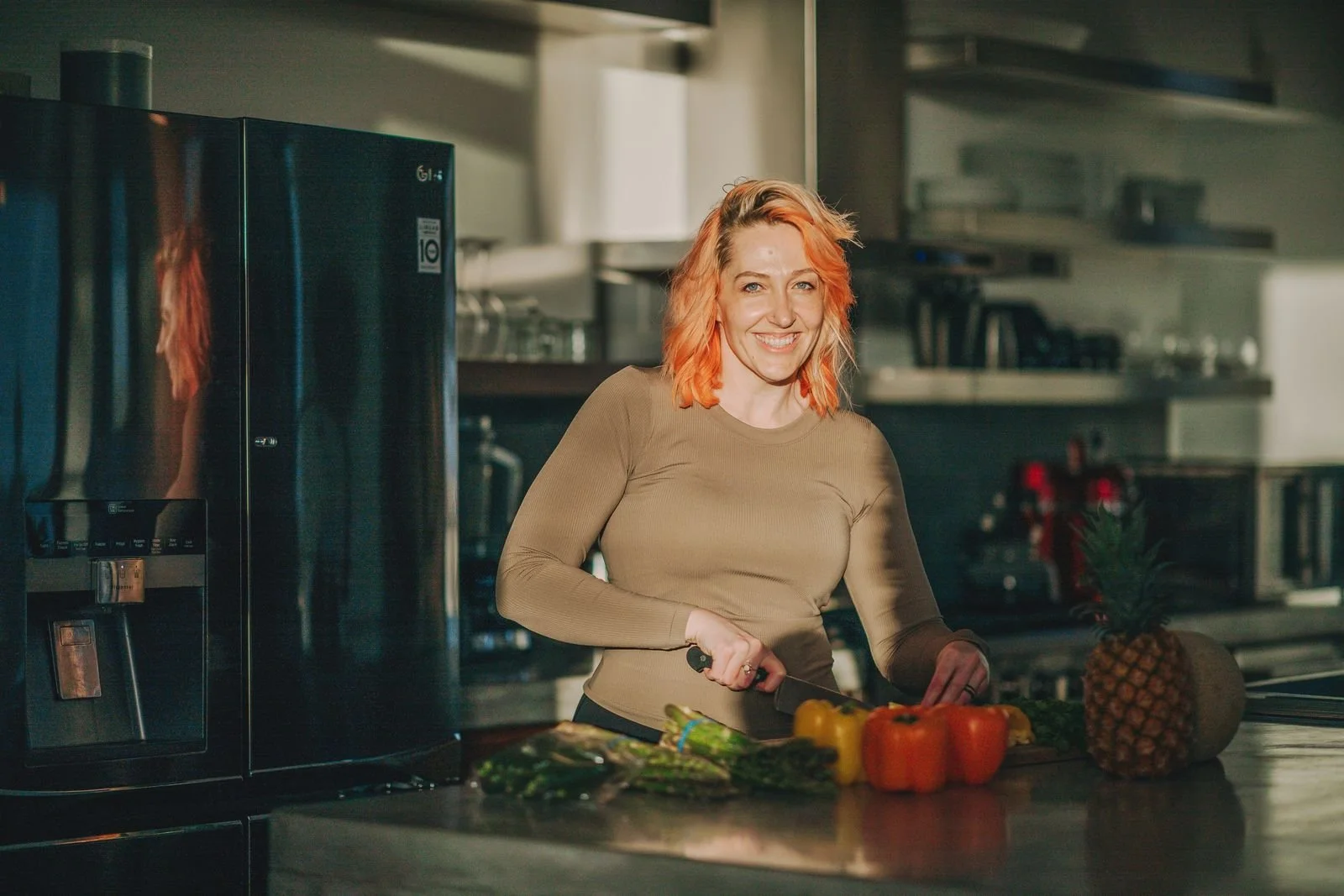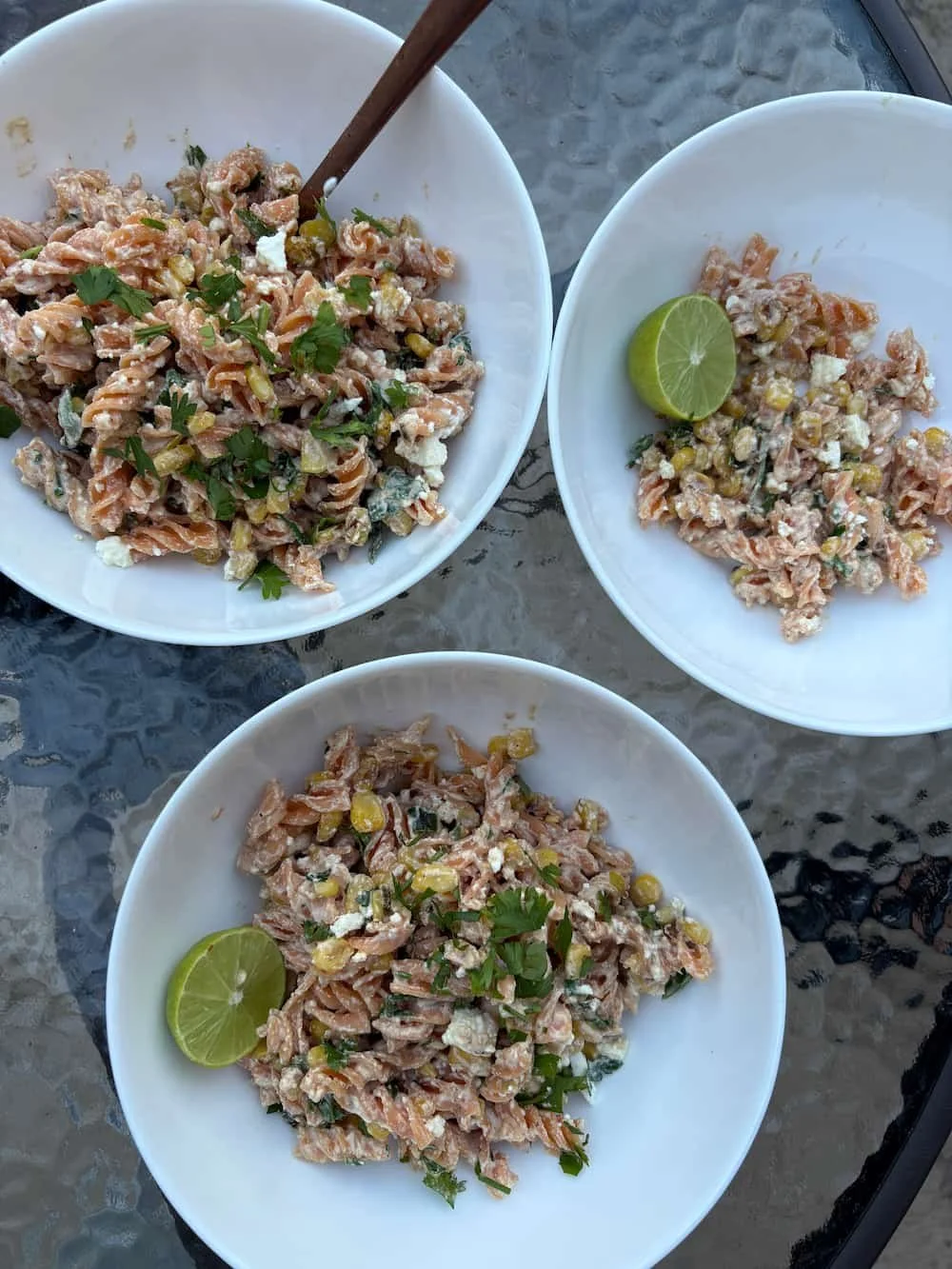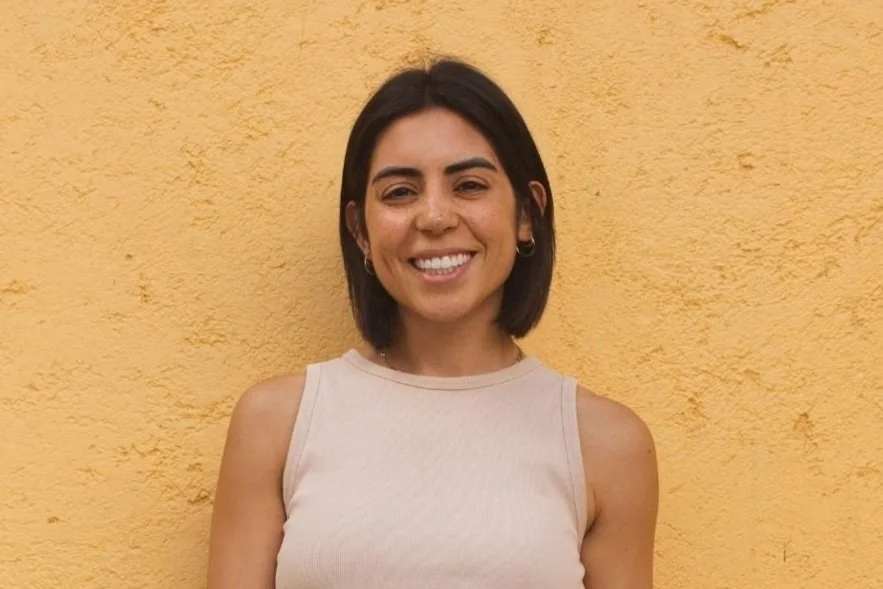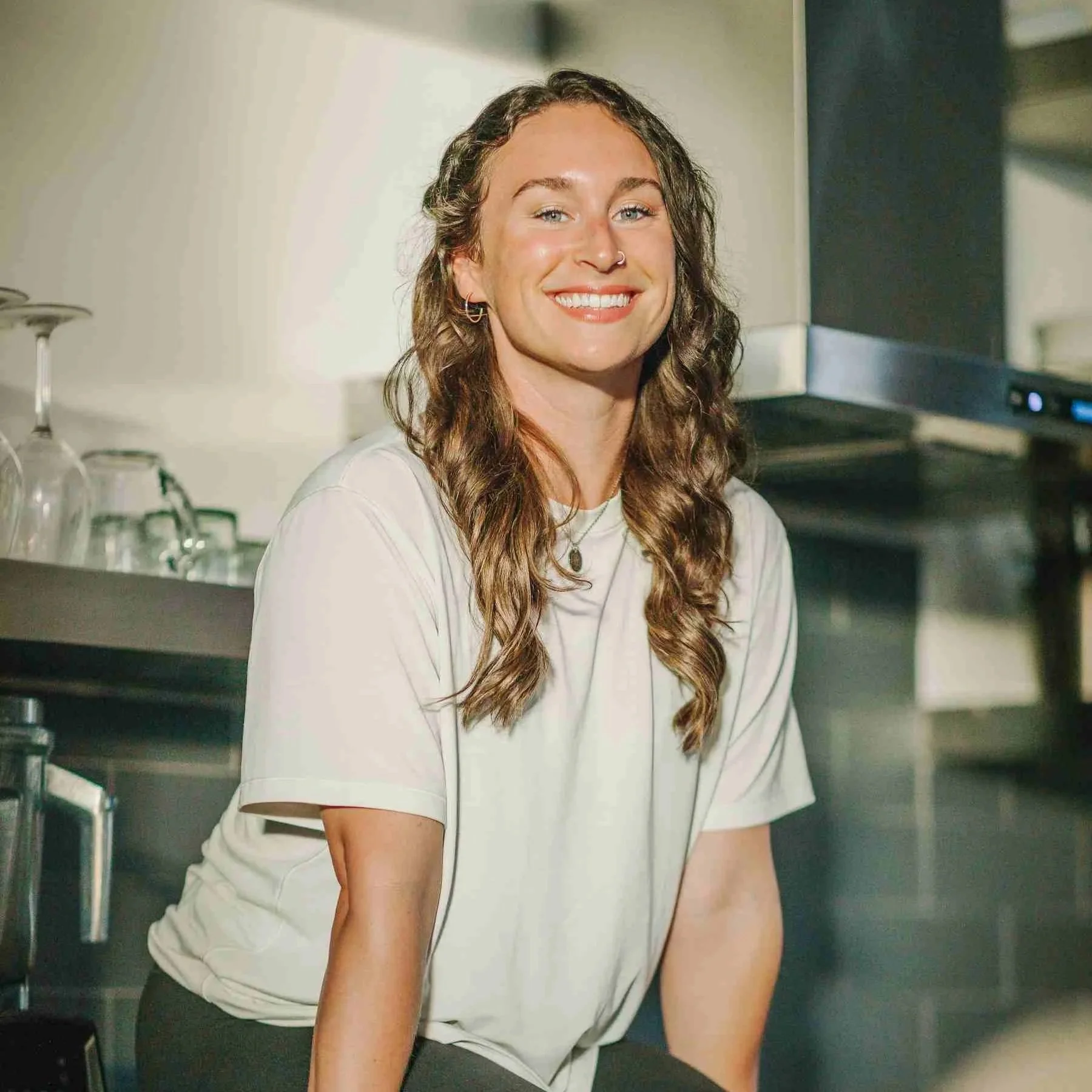Overeating Vs. Binge Eating: How To Know The Difference
It’s another Friday night, you head out with the girls, down a few Margaritas and tacos before returning home frustrated from your continued “lack of willpower” in maintaining a “healthy” lifestyle. Before you know it, you’ve grabbed the family-size bag of Doritos from the cabinet and polished off every last crumb while watching repeat episodes of Gilmore Girls…despite not actually feeling that hungry.
Sound familiar? How about this:
It’s been a long work day, running around from meeting to meeting. You get exactly one hour upon returning home for the day before you have to leave to pick up the kiddos from soccer practice and round two of the work-after-office work day begins. Without thinking, you beeline to the kitchen, still in the uncomfortable office clothes, grab two pints of Ben & Jerry’s because choosing between a flavor feels like a decision that would send you spiraling into endless frustration, and plop yourself down on the couch. It’s been 15 minutes, you can’t stop eating the ice cream (so it must be true hunger, right?!), the spoon soon hits the now-empty containers, and you have a raging stomach ache. You toss the containers (which you just bought yesterday and were supposed to last the entire week) and are caught in a whirlwind of thoughts and emotions. What just happened? I still want to eat despite feeling uncomfortably full right now. Where do I go from here? Crap, it’s time to leave to go pick up the kids. Ugh, I wish I had another pint to escape it all for another 5 minutes.
Overeating happens. We’re all human, and utilizing food as a stress coping mechanism is our most accessible form of tool when big-time stressors and emotions surface. But when is overeating actually something more serious? First, we have to talk about the difference between overeating and binge eating.
What is Overeating?
Overeating is something that most of us experience at some point and is considered a fairly “normal” result characterized by an additional plate of food when already full or eating beyond satiety at a birthday party, holiday dinner, or while watching the NBA Playoffs. Sometimes, overeating is a stress-coping response used when big emotions are present or we have just experienced a stressful event. Other times, we might overeat because something just tastes good (and can even happen even with balanced/intuitive eating). It is not a major occurrence or intentional habit that disrupts day-to-day living.
why do i keep eating when i’m not hungry?
Understanding why we overeat or feel out of control around food is not always straightforward.
Habits that contribute to overeating episodes might look like:
Having overly strict food rules (like cutting out entire food groups or only eating within one shortened time window) where intense food cravings dictate choices.
Utilizing food as the sole coping mechanism in response to stress (rather than having multiple options to choose from).
Adopting an “all-or-nothing” mentality as it relates to food and lifestyle habits (I already ate more than what I should have today so I might as well keep going) which can drive the urge to eat past fullness.
Going too long between meals or skipping meals all together which can lead to extreme hunger cues that feel out of control.
Labeling foods as “good” or “bad” which can create a restrictive mentality. This only makes us want those self-labeled “off limits” foods even more.
Chronically high stress levels which can impact overall appetite and our ability to regulate hunger and fullness cues. Stress can lower hunger for some, but increase cravings and a drive for comfort foods in others.
Consistently getting less-than-optimal sleep disrupts hunger and fullness hormones (ghrelin and leptin) which can increase appetite and cravings for sugary and higher-fat foods.
Mindless or distracted eating (eating while stressed, working, watching TV, scrolling on your phone) can make it harder to notice fullness cues and lead to eating more than intended.
If overeating becomes more frequent and distressing, it may be defined as Compulsive Overeating-requiring more care.
how do i know if i’m binge eating?
A “binge” is a defining characteristic of Binge Eating Disorder (BED). According to the American Psychiatric Association, binge eating is defined as “eating a large amount of food in a short period of time associated with a sense of loss of control over what, or how much one is eating.”
We’ve all overeaten, as that can be part of normal eating. Bingeing, on the other hand, tends to feel chaotic and disconnected. Overeating is when you go back for another slice of pizza because it tastes amazing. Bingeing is eating half of the pizza alone in your car and wondering why you couldn’t stop. Bingeing is not a lack of willpower, and those who struggle with binge eating typically experience feelings of disgust, guilt, or embarrassment and binge eat in isolation to hide their behavior.
Furthermore, binge eating can lead to serious health complications, including obesity, diabetes, hypertension, and cardiovascular diseases. Overeating and bingeing are not interchangeable terms as they have different emotional and psychological roots.
what should i do if I am struggling?
If you see yourself in any part of this blog post, know that you are not alone and there’s nothing “wrong” with you. Food can be emotional, messy, comforting, and complicated. The more awareness and compassion you bring to your eating experiences, the more space you create for healing. The goal isn’t to never eat past fullness again; it’s to build a relationship with food that feels steady, flexible, and respectful of your body. Whether you’re navigating occasional overeating or feel stuck in a cycle of binge-style behaviors that may be more serious and require more care, there’s support out there that doesn’t involve guilt, shame, or rigid rules.
Resources for Eating Disorder Support
If you or someone you know is struggling with mental health episodes, binge eating cycles, or has been diagnosed with Binge Eating Disorder and is curious about additional care, take a look at the resources below:
Find Eating Disorder Treatment in Your Area
ANAD (Anorexia Nervosa & Associated Disorders) Hotline: 1-888-375-7767, 8am-8pm EST
National Alliance for Eating Disorders Hotline: 1-866-662-1235, 9 am-7 pm EST (M-F)
Frequently Asked Questions
What’s the difference between overeating and binge eating?
Overeating might look like eating past fullness at a holiday dinner, snacking while distracted, or reaching for comfort food after a stressful day. It happens to all of us! Binge eating, on the other hand, tends to feel chaotic and distressing — like you're out of control, eating a lot in a short period of time, and often left with guilt or shame afterward. They're not the same thing, and one doesn't always lead to the other.
Can you overeat without binge eating?
Yes, 100%! Overeating is super common and doesn’t automatically mean something is wrong. It becomes a bigger concern when it starts to feel compulsive, emotionally charged, or like something you can’t step out of easily.
When should I seek help for binge eating?
IIf you’re feeling stuck in a pattern that feels really hard to get out of—whether that’s frequent bingeing, using food to numb out, or feeling overwhelmed by guilt after eating, reaching out for support from a healthcare professional or RD with expeirenced in disordered eating can provide the support you need. There’s no “threshold” you have to hit to ask for help.
Can nutrition coaching help with binge eating?
Our coaching at KLN can support clients navigating emotional eating, building distress tolerance, and unlearning restriction, and building an overall better relationship with food — but we also always work within our scope of practice and do not diagnose or treat eating disorders, but refer to specialized care when needed. And if we think you’d benefit from more specialized care, we’ll point you in the right direction, judgment-free.
If you’re feeling stuck in patterns of overeating or emotional eating, you don’t have to navigate it alone. If you’re feeling ready to build a healthier, more compassionate relationship with food, our team of coaches is here to guide you -- no shame, no rigid rules, just real support. Let’s work together to find what feels good for your body.

























